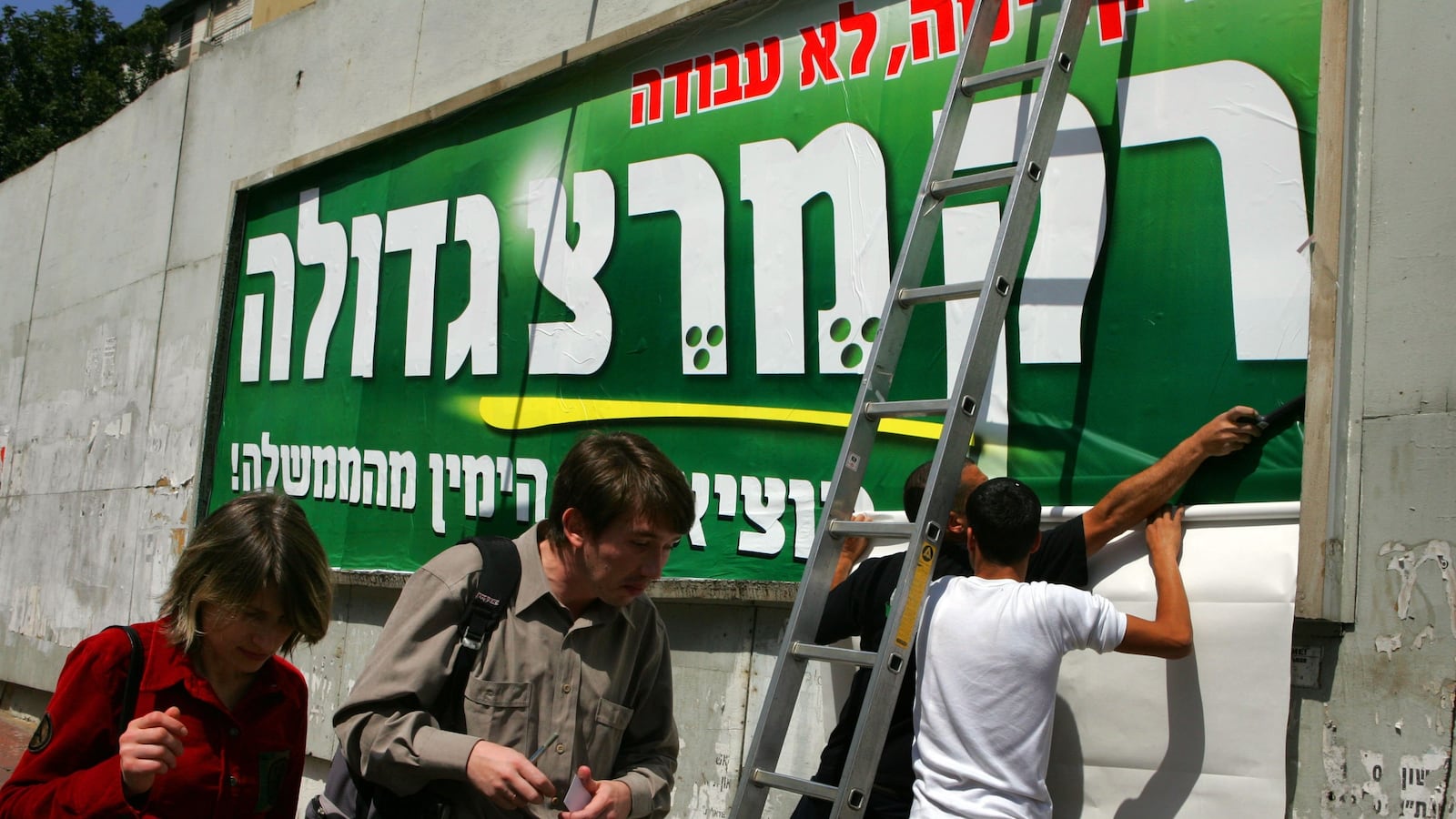I read Noga Tarnopolsky's Open Zion article, “20 Years After Oslo, What's Happened to the Israeli Left?” with some shock and disbelief. She conflated two very different matters: the electoral weakness of Israel's dovish left, and an allegation of anti-Arab “racism” in the primary election for places on the Meretz slate contesting for seats in the Jerusalem city council in October.

The first is a major question, encapsulated in the article's title, but hardly addressed at all. An effort to provide an answer to this complicated question might begin with the assassination of Yitzhak Rabin, the flawed leadership of his successor Shimon Peres, his defeat by Bibi Netanyahu in 1996 as a result of a wave of suicide bombings in Jerusalem and Tel Aviv, and the erratic leadership style of Ehud Barak over an unstable governing coalition and a mismanaged summit at Camp David in 2000, plus the ravages of the Second Intifada which devastated Labor and Meretz voter ranks in its wake. Much ink has been shed on these factors and more, but not by Tarnopolsky in her article.
The second is a much smaller matter regarding an acrimonious election involving a few hundred voters. In it, Pepe Alau was challenged by his long-time running mate, Meir Margalit, for the number one spot, which Alau has held for 15 years. It's doubtful that they have any serious political disagreements.
What is in contention is that about 50 Arab residents of East Jerusalem were recruited to the polling place as brand new registrants to the Meretz party, many or most without proper documentation of their names and addresses. It is also understood that most if not all were not Israeli citizens. Rightfully or not, it is unlawful for non-citizens to belong to an Israeli political party and thereby have the right to vote in a primary.
Unlike their brethren in the West Bank and Gaza, East Jerusalem Arabs have the status of residents of Israel and can vote in municipal elections—which most boycott anyway, to protest Israel's occupation. They have also been offered Israeli citizenship, which most have likewise refused for the same reason (though we have seen a recent increase in applications). This leaves them in an ambiguous legal status.
As Tarnopolsky has pointed out, the primary result was annulled by a national Meretz committee responding to the irregularities, but a compromise settlement has been reached. According to the party general secretary Dror Morag, "Pepe will be in the front for the first half of the term and then Meir."
Margalit has accepted this decision, although not happily, indicating to me in an email: “I have no choice but to accept it. For now I will focus my attention on winning the elections and thereafter I will decide what my next steps ought to be.”
Tarnopolsky has claimed that the decision disenfranchised Arabs and was an effort to block an Arab candidate, Fouad Suleiman, the deputy head of the Histadrut (labor union confederation) in Jerusalem, from a place on the Meretz list that provides a realistic chance for election. Yet this is contradicted by Laura Wharton, the third incumbent Meretz member of the city council currently, who will continue as the third-ranking name on the party list and who wrote in an email:
In the end, no one was disqualified and everyone has accepted the decision of the party's committee. Fouad also ran in the last elections and also then came in 4th place—after Pepe, Meir, and me; in other words, the order of the list hasn't changed. What has changed is that we got some terrific new people to run who will be taking part in the campaign even if their chances of getting in are relatively slim...
Wharton wrote further:
…There were people who thought that both Meir and Fouad should be completely removed from the list, and Rabbi Ehud Bandel, a veteran member of Meretz (and no. 5 on the list), has said that he will not take part in the campaign because of their inclusion. The fact that Meir, who some people thought should be disqualified, and Pepe who lost, should each serve half a term is a compromise to preserve some continuity and satisfy to some extent supporters from both sides.
Wharton also pointed out that Yael Dayan, who is quoted by Tarnopolsky as critical of Meretz in a letter to the editor of Haaretz, is misidentified as “Meretz's leader on Tel Aviv's City Council.” In an online comment below the article, Wharton indicated that Dayan “was booted out” by Meretz members: “Therefore whatever she writes must be understood not as objective criticism of her fellow party members but as gloating over problems in the party that rejected her in its last elections.”
The Meretz party's national media spokesperson, Roy Yellin, emailed his reaction to Tarnopolsky's characterization of this controversy as an “overlooked scandal,” pointing out that it was covered by “leading Israeli news channels, such as Haaretz and Yediot Achranot.” (Tarnopolsky may have meant that it's "overlooked" in American media.) He contends:
When evidence was presented that people voted [who were] not legally registered to Meretz, the Meretz National leadership had to intervene… Ms. Tarnopolsky's attempt to portray Meretz as racist, does not dignify [a] response, but it is enough to point out that one of Meretz's six Knesset members is an Israeli Arab, MK Esawi Freige, and that Meretz is the only Zionist Arab-Jewish party in the Knesset.
Interestingly, in her penultimate paragraph, Tarnopolsky delivers a back-handed compliment to Meretz: “it’s the only party that once drew millions of Israeli citizens to vote in favor of a risky peace plan by arguing that Zionist values dovetailed with the need for social justice, and made significant sacrifices worthwhile.” But her arithmetic is as much askew as is her exaggerated sense of the significance of this dispute in Jerusalem to the prospects for peace; “millions” of voters for Meretz, or even for the peace camp as a whole, in a country that even today has barely eight million citizens, is wildly inaccurate. At its electoral high-water mark in 1992, Meretz won 250,000 votes.
But if this affair does not do lasting damage to the party, Meretz does appear to be on the rise. It doubled its representation in the Knesset from three to six seats in the national election of January 2013. And the party is hopeful for the prospects of its candidate for mayor of Tel Aviv, MK Nitzan Horowitz.





